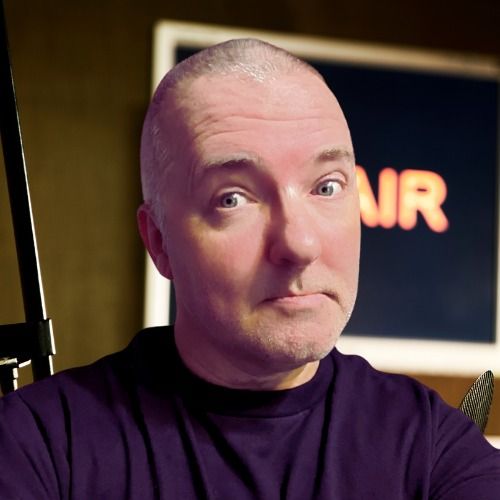Episode 18
Let's Talk About Mental Health in Podcasting
There are a lot of studies on how podcasting can benefit listeners when it comes to their mental health, but this isn’t the case when it comes to the creators behind the podcasts. And that’s more than a little disconcerting. Because podcasting can be such a lonely endeavour, this only exacerbates the issues someone might be going through that are multiplied when their anxieties about their podcast start to take over.
For those that are suffering, it’s often in silence. Even though it’s 2023, mental health still carries a stigma around it - according to the American Psychiatric Association, more than half of people with mental illness don’t receive help. A lot of this can come down to the fact that people are so unwilling to talk about it - going back to that belief they're weak, or there must be something wrong with them and only them. Or, worse of all, they believe it's "all in their head" because they've been told that often enough.
This is where talking about mental health, and encouraging open conversations around the topic industry-wide, can be an important step forward in recognizing the loneliness and fear that can come with podcasting.
Support the show: Become a Premium Member for ad-free early access, exclusive live streams, and more.
Contact me: danny@dannybrown.me
Products I use for Pod Chat
Note: these contain affiliate links, so I may get a small percentage of any product you buy/use when using my link.
My equipment:
- Shure SM7B dynamic mic
- Rodecaster Pro II production studio
- Sony MDR-7506 Studio Monitor Headphones
- Elgato Wave Mic Arm Low Profile
Recommended resources:
Mentioned in this episode:
Enjoy Pod Chat? Leave a review or rating on your preferred app and show the world you care!
Did you know every time Pod Chat gets a new review, a baby podcaster takes their first steps? Help a baby podcaster walk today, by leaving a 5-star rating or review on the likes of Apple Podcasts, Spotify, and more. Just head on over to podchat.ca/review and do your magic - these little feet are counting on you!
This podcast uses the following third-party services for analysis:
OP3 - https://op3.dev/privacy
Podtrac - https://analytics.podtrac.com/privacy-policy-gdrp
Transcript
Disclaimer: today's episode talks about mental health issues, including treatment. If this is a topic that might cause distress, perhaps pass over this episode and I'll see you the next time. And take care.
Danny:In early twenty nineteen, I was diagnosed with depression and anxiety. While I discovered that I'd probably been suffering for a lot longer than that, it was made official after a mini breakdown I had one morning on the way to the marketing agency where I worked at the time. I spoke about this diagnosis and the lead up to it on my wife's old podcast, Mental Health and Me.
Danny:When my incident happened, my brain essentially shut down. I couldn't take another step forward and I knew I wouldn't get through the day if I went to work. So instead I texted my wife, told her what was happening, and I was on my way home and needed help. Because Jaclyn had been diagnosed with depression and anxiety when she was 20 and at university, I knew she'd know the best steps to take next. So when I got home, she drove me to the hospital three cities over that had one of the best mental health programmes and teams in that part of Ontario, Canada. By this stage, I was pretty worked up with speeding pulses and heart, red skin, and drifting between tiredness and being awake. I spent the next few hours undergoing tests, kind talks with even kinder staff, and more. All of this led to my diagnosis and a treatment plan was put in place, including regular visits to the specialist at the hospital, medication, time of work and rest. It helped immensely. By being diagnosed correctly and what the overarching cause was stress, exhaustion from overwork and a poor regime when it came to diet and exercise, I was able to get the right treatment and the right future path.
Danny:Now, while I still suffer from depression and anxiety, I know the signs when it starts to rear its head and how to manage better. I wanted to give you this background of my own experience as it helps me when it comes to the topic of mental health issues in the podcasting space, and I don't think that's something that's spoken of enough and that needs to change. I've been in the podcasting space for over ten years now, both as a podcaster and as a behind the scenes person when it comes to helping create and edit podcasts for others. For the most part, this time has been a solo endeavour, although there has been occasions where I was co host of a show as well as worked with a team on a client podcast back in my agency days. Because of this, pretty much everything you hear on any of my shows is a result of my work, from planning to research, recording to editing, publishing, promotion and more. It's all done by me. There may be the odd occasion where I've outsourced artwork or intros or outros, but that's a very small part of the bigger creation process. It's this solidarity that can cause or add to mental health issues for podcasters.
Danny:Let's take editing as an example. I used to hate editing and as such didn't edit my oldest shows. And you can tell! Since finances were also limited, being a dad with two kids and a mortgage, et cetera, I also couldn't afford to outsource. Sure, there were cheap options on the likes of fiverr, but honestly, even that would have been a hard hit financially when there were so many other things to pay for and worry about. But I knew my shows could be better. So I watched a whole bunch of YouTube videos, followed a whole bunch of editors for tips, listened to podcasts about editing and what you should and shouldn't do, et cetera. And that in turn gave me the confidence to start editing. But then that's where the fun began.
Danny:When you suffer from mental health issues, one of the things you do is question yourself: are you good enough? Do people like you for who you are? Are you worthy? Transfer this to the editing process and you can see the parallels. Is the audio good enough? Do people like your podcast? Is your content worthy of being consumed? This all comes out in the editing process because you start to second guess yourself. Your voice that you don't already like the sound of, and ask any podcaster what they think about their voice - it starts to grate more. As you listen back, you hear bits of imperfection in the audio that aren't actually there. You accentuate parts you think listeners will like at the expense of more valuable content. And you ask over and over again, at what point do you think your listeners will lose interest?
Danny:For someone already suffering from mental health issues, this kind of pressure starts to close the air around you. You scrutinize more, and this leads to more pressure. Soon you want to start all over again because there's no way the audio can be as perfect as you want it to be. And that indecision feeds on your anxiety. Now you feel you can't possibly be good enough because there's so much to do to improve the audio. You spend hours trying to achieve something that will never come. And these hours are time away from family, friends, loved ones and company. Any company but the kind that can ease the pressure you put on yourself. And that's just one facet of mental health's impact on podcasters and those helping produce a show. There are also external pressures too.
Danny:Once your podcast is published, a new round of questions begin when it comes to the analytics of your show. Take a look online at the majority of questions from podcasters around analytics, and the overriding question is, are they good enough or do these download numbers look good? This is where the imposter syndrome that affects so many people dealing with mental health issues gets even worse. While you know you shouldn't, you look at other podcasters in your niche, their success, their downloads and then look at yours and tell yourself you can't possibly be good enough because you're nowhere near these other podcasters. It doesn't matter that we don't know the success others are sharing is genuine, nor does it matter that we don't know the processes they have and the struggles they might have putting their own show out. All we see is our perception of their success aligned with our failure.
Danny:Because of that, we question our content again and again and decide it's not good enough, even though it probably is, and either make changes to the format that negatively impact the show or give up altogether. If you choose the latter route, you feel like a failure. Something else you've tried it hasn't worked. So now what? Where next for your life? For anyone that suffers from mental health issues, you know how damaging this mindset can be. These are just two examples. There are many more: sponsors not looking to work with you, lack of interest from guests, lack of reviews, the amount of time to create a single episode from start to finish, et cetera. It's taxing, lonely, and potentially harmful work. So what can be done?
Danny:As I mentioned at the start, I've been in the podcasting space for over ten years. During that time, I've met and spoke with many podcasters who have shared their own mental health examples and how that can sometimes be impacted by their podcasting endeavours. This is in contrast to how the industry is talking about mental health as part of the bigger picture around podcasting. While there are lots of industry publications talking about the future of podcasting, advertising, tech advances, et cetera, there are very few, as far as I could see when doing some research, that are actually talking about mental health in the industry. There are a lot of studies on how podcasts can benefit listeners when it comes to the mental health, but this isn't the case when it comes to the creators behind the podcasts. And that's more than a little disconcerting. Because podcasts can be such a lonely endeavour, this only exacerbates the issues someone might be going through, and these are multiplied when their anxieties about the podcast start to take over.
Danny:For those that are suffering, it's often in silence. Even though it's 2023, mental health still carries a stigma around it. According to the American Psychiatric Association, more than half of people with mental illness don't receive help. A lot of this can come down to the fact that people are so unwilling to talk about it, going back to that belief they're weak, or there must be something wrong with them and only them, or worst of all, they believe it's just all in their head because they've been told that often enough. This is where talking about mental health and encouraging open conversations around the topic industry wide can be an important step forward in recognizing the loneliness and fear that can come with podcasting.
Danny:It's a wonderful medium, a wonderful, rewarding medium. It encourages people to be creative, to connect with others, to create something that can be truly impactful on the lives of others who we may never meet. We need to recognize that and encourage celebration around that while also recognizing people may be reaching out for help but don't know how to ask. I know - the irony of people in a medium that relies on spoken word for content to be consumed, not having the words to ask for help. But if we can open up the conversation and help podcasters and those in the podcasting space see the industry as a safe, welcoming place we know it can be to talk about their mental health, it will help remove that fear of saying the first word. And that can be the most important word a podcaster will ever say.
Danny:Did you know every time Pod Chat gets a new review, a baby podcaster takes the first steps? Help a baby podcaster walk today by leaving a five star rating or review on the likes of Apple Podcasts, Spotify and more. Just head on over to podchat.ca/review and do your magic. These little feet are counting on you.


